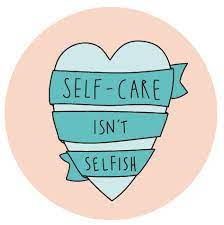 If the COVID pandemic has revealed anything, it’s that nurses must implement self-care, and that most of us aren’t doing this enough or well. Nurses who participated in the recent Journal Club to discuss the JCN article, “Self Care: A Stewardship Perspective,” offered plentiful evidence of the necessity to care better for ourselves.
If the COVID pandemic has revealed anything, it’s that nurses must implement self-care, and that most of us aren’t doing this enough or well. Nurses who participated in the recent Journal Club to discuss the JCN article, “Self Care: A Stewardship Perspective,” offered plentiful evidence of the necessity to care better for ourselves.
Three inestimable elements of nurse self-care rose to the top during the webinar and the discussion. These anecdotal points were offered and affirmed by nurses as well as by the webinar panelists and the article author, Rachel Spurlock Helbley.
1. Rest. A massage, a walk through a natural setting, and exercise are all valuable possibilities to slough off emotional stress and physical exhaustion of busy work shifts. But the value of just resting—napping, relaxing physically, taking a longer break than a 10-minute pause—cannot be overlooked.
God tells us to rest. The Sabbath rest he initiated (Genesis 2:1-3) when he created the earth and us is still a wise choice and a mandate from the God who knows our limitations and needs. Exodus 31:17 says God “ceased from labor” on the Sabbath and he “was refreshed.” Suggestion: Put REST on your calendar and follow through.
2. Relationships. We NEED relationships with each other and with God, reiterated Christy Secor during the webinar. Christy’s NCF work is largely aimed at creating opportunities for nurses to relate to each other, primarily in small groups, but also virtually. In her past work with nurses, Christy recognized that nurses with high levels of compassion fatigue most needed relationships.
Building relationships with nurses who understand our work is so valuable. So are relationships with friends, family members, and church people. Choosing to connect with others can bring us into meaningful, sustaining, and reviving relationships.
Suggestion: Choose someone to meaningfully interact with this week.
3. Gratitude. Research has shown that a mindset of thankfulness is health promoting (Layous, 2020). Changing an anxious, angry, or apathetic mindset requires meditating on the right things. The remedy for a lack of gratitude is to meditate on God’s Word and his character. Read and think on the Psalms. Consider these: Psalm 34, 95, and 111. Focus also on thanking God for his mercy, power, compassion, and strength.
Participants at the Journal Club shared how being stuck in “survival mode” led to hopelessness. Others felt isolated due to avoiding co-workers or others who were toxic or hard to get along with. Nurses described their spiritual dryness and thirst. The antidote they each needed was intentionally setting their minds on gratitude to and for God. Some nurses journal or list what they’re grateful for. Others speak or sing their gratitude in private.
Suggestion: List 10 or more people and things you’re grateful to God for. Make this a habit.
Learning to care for oneself isn’t just a fine idea. It’s an act of reverence to God who made us and values us so much that he gave his son as the payment for our sin. Make self-care part of your life so you can be a healthier nurse, one who reflects the glory of your Creator in whose image you are made.
Layous, K. (2020). Health implications of gratitude.Wiley Encyclopedia of Health Psychology. https://doi.org/10.1002/9781119057840.ch75
The April 2021 Journal Club webinar is available for free for NCF members (with 1.5 units of NCPD/CE). Other recent Journal Club webinars can also be viewed.
If you’re not a member, join this month at a discounted rate and get a plethora of benefits.
Add new comment